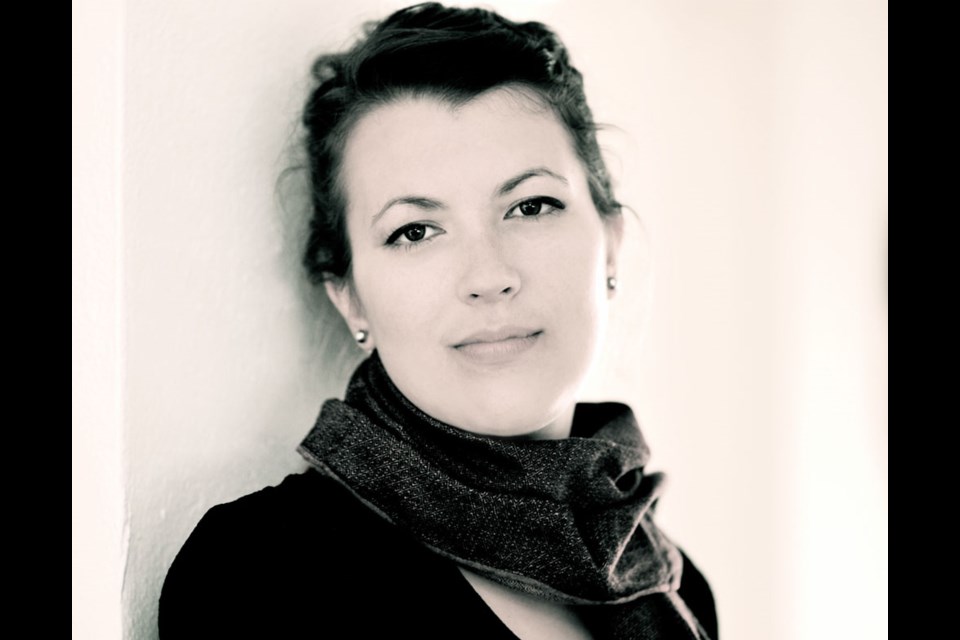For Maria Reva, it was an English class at New Westminster Secondary School that introduced her to the concept of the linked short story collection.
She recalls being introduced to Margaret Laurence’s classic A Bird in the House and being fascinated by the idea of a book that was not a novel, but a collection of intertwined short stories.
“That literary structure just blew my mind at the time,” she says.
Reva was a French immersion and international baccalaureate student at NWSS before graduating in 2007; she went on to pursue a master of fine arts degree in fiction from the Michener Center for Writers at the University of Texas. This week, she’s returned to her old high school to speak to NWSS students about her award-winning book: a collection of linked short stories titled Good Citizens Need Not Fear.
Reva is one of the featured presenters at the five-day Between the Lines Literary Festival, underway at New Westminster Secondary School all week from May 9 to 13.
The timing of the festival, in the midst of war in Ukraine, adds weight to the occasion for the Ukrainian-born author. She left her homeland with her parents and sister at the age of seven, but their extended family — grandparents, aunts, uncles — remain in Ukraine. Most of her relatives have been able to flee the danger zones since Russia’s invasion began on Feb. 24, but Reva’s grandfather and his sister remain in Russian-occupied territory.
“There’s a sense of time collapsing,” Reva says. “The last two months have felt like two years, but they’ve also felt like moments, a few seconds. It’s been really, really disorienting.”
Reva’s book is set in a previous turbulent period in Ukrainian history: around the collapse of the Soviet Union. Good Citizens Need Not Fear is set in the old apartment block where her family lived before moving to Canada. Each story takes place in a different unit as residents grapple with the precariousness of the times they live in, before and after the fall of the U.S.S.R.
“I do feel this war is a continuation of that history,” Reva says. “The book does explore the tension between Ukraine and Russia, and the colonial relationship between the two countries where Soviet authorities really tried to quash Ukrainian culture and language for many decades, and we’re still seeing the consequences of that.”
Reva has some childhood memories from the time. She remembers the garments that filled the apartment after her father stopped being paid at his job and her parents earned money by making fur coats for the black market. They would work through blackouts by candlelight, and the fur would get everywhere — “in your eyes and your mouth and your porridge,” as Reva says her sister recalls it.
For the most part, Reva says, she remembers only feeling safe and protected by her parents, and she was too young to grasp the enormity of what was happening around them.
It wasn’t until a few years ago that her parents told her the story of the first winter they spent in that apartment building, when the heat wouldn’t turn on. When her father went to the town hall to ask what was going on, he was informed that there was no record of that address and that the building didn’t exist.
“My dad had to go on this bureaucratic goose chase to various authorities around town, trying to prove that our building existed,” Reva says.
That became the inspiration for what would become the first story in her collection.
“I started wondering, what are the other people doing in this building that supposedly doesn’t exist?” Reva says.
That wondering led to a second story, and a third, and gradually, organically, morphed into a story collection.
Good Citizens Need Not Fear has been published in Canada by Knopf, in the U.S. by Doubleday, and in the U.K. by Virago. It’s earned Reva kudos from such Canadian literary luminaries as Miriam Toews and Margaret Atwood, and it recently won the $25,000 Kobzar Book Award for Ukrainian Canadian writing.
But Reva, in her talk to NWSS students, planned to focus less on the outcome of the finished literary work and more on the process of getting there.
“I think when folks see a book in a bookstore … it looks like the book just kind of came out that way from the author’s head,” she says with a laugh. “What I want to show is the complex, roundabout process of developing a manuscript, how you hit so many dead ends, you have to revise so many times, and how the book becomes the object.”
Reva was set to speak to NWSS students as part of Day 1’s Local Lineup, with poets laureate Elliott Slinn and Alan Hill in the morning and Reva in the afternoon. You can find a full lineup in this story about the Between the Lines Festival.
Follow Julie MacLellan on Twitter @juliemaclellan.
Email Julie, [email protected].

-web.jpg;w=120;h=80;mode=crop)

